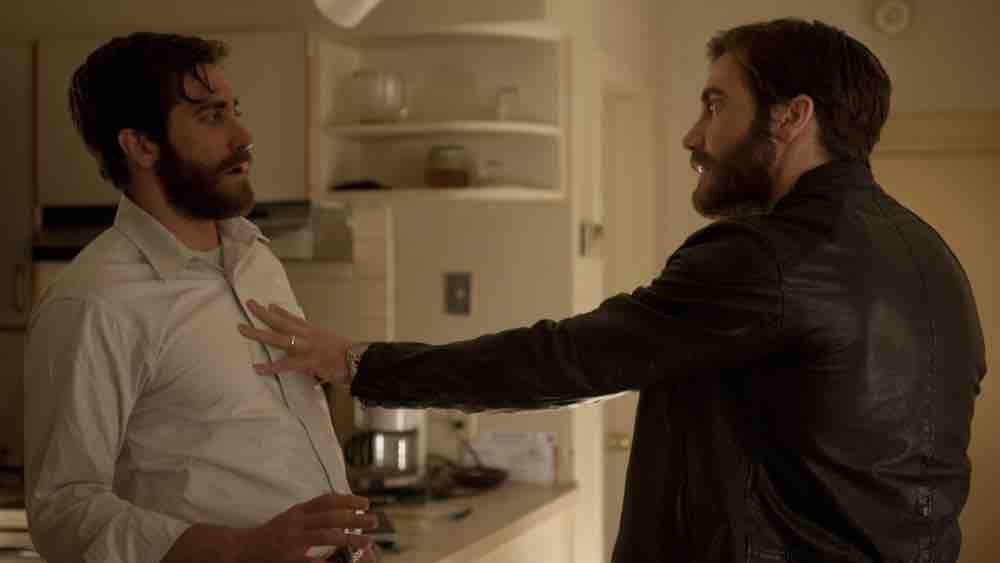Behind every great film is a great script. Everything that goes up on the screen starts on the page. But what makes a good screenplay? Thinking even smaller, what makes a great scene in the writing stage? This is where script analysis can help us better understand why one film works better than another. In this article, we’ll cover the crucial aspects that contribute to bringing a film to life through the script. After covering these foundational aspects, you’ll be able to spot a good screenplay and write one yourself.
Why Script Analysis Matters

The most immediate question one might pose with script analysis is a common query of any grade-school student: Why do I need to know any of this stuff? It’d be easy to write off a good screenplay as just being “good” and not have to think about it any further than that. But they become unnecessary enigmas without understanding what makes good scripts work. At worst, screenwriters can be led astray when trying to compose a meaningful script.
Analyzing scripts can help in better editing to determine where a script works and when it falters. The key is not so much in the writing as in the rewriting. While editing the script, the film starts to take better shape in considering the many aspects. Is the story coherent? Are the themes apparent? Do the characters have enough development to make them worth following? There are a lot of questions to consider, but there’s an important one at the heart of a good screenplay: Is this a movie worth watching?
WATCH: How To Write Great Dialogue
Connecting With Characters

Character Development
Character progression is key for a screenplay unless you’re composing an abstract picture like Koyaanisqatsi. Audiences want to follow interesting people with depth and detail conveyed by the actors. Characters need to have motivations to help them progress through the story. Why does a character do what he/she does?
There must be a reason for their actions. Finding that ultimate goal is what drives them to continue onward. The motivation will also intrigue the audience to see what they’ll do next.
Motivation
Some motivations can be simple on the surface. In Harold and Kumar Go To White Castle, the motivation is pretty much in the title. The two titular stoners crave a late-night snack inspired by a commercial. They want White Castle, but they must journey far to find one. There’s no confusion about why these two characters go on a wild road trip. They have a tangible goal and will strive to reach it before the film ends.
In other cases, motivation can go much deeper than food and travel. Scripts can feature characters striving to understand more of their world and find a deeper meaning or purpose.
What’s Their Story?

Consider Bella from Poor Things. Although her desires initially motivate her, her curiosity for life drives her to become more participatory than passive within her story. She soon learns about the ugliness of capitalistic greed, the power dynamics of sex, and the political mechanics of how society functions. Bella echoes a real person in how she is driven more to understand the strangeness of life rather than view it within a simpler box, complemented by other characters.
While motivations are great for character development, ensuring these characters have a voice is another crucial aspect. Characters in a script can have goals, but how they achieve them makes them unique.
Harold and Kumar are not simply funny because they want to travel an absurd route for fast food. Their delivery and performance make the comedy work so well, so scripts often highlight key emotions in the line delivery.
Bella from Poor Things isn’t just unique because of her Frankenstein’s monster backstory or her desire to learn. Her deadpan talking and blunt reasoning make her a fun character to follow in her development, highlighting drama as much as comedy.
The Power of Conflict

A car can’t move without an engine, and a script can’t without conflict. A character’s objective only becomes exciting when a mountain exists between the protagonists and their goals. It’s the process of conflict in script analysis that makes stories interesting and exciting. There’s a thirst within the audience when a conflict presents itself, bringing about the thought, “How are they going to get out of this mess?”
Much like character motivations, conflicts can be big and small. They can be as epic as the Empire trying to dominate the galaxy in Star Wars or as routine as shopping in Jingle All The Way. No matter the scale, a good conflict is essential to making the story more entertaining.
Without proper stakes or a resolution, there isn’t much to root for in a script. This is often why even the most eccentric comedies will have some down moments where there’s a reason to care why the characters will make it through to the end of the picture.
It’s important to note that any story always has some form of conflict. This is a key aspect of the script analysis for Adaptation, a meta-comedy about writing where Charlie Kaufman struggles to write a screenplay adaptation of a book on flowers.
When he comes to the acclaimed writer Robert McKee for help in writing a script where nothing happens like in real life, McKee angrily bites back, “Nothing happens in the real world? Are you out of your f**king mind!?” McKee then lists how much conflict there is in the real world, ranging from war to starvation.
There is conflict all around us. If a script can’t find that conflict that makes the story great, McKee’s portrayal puts it best when he questions, “Why the f**k are you wasting my two precious hours with your movie?“
Build a Structure

Plenty of terms refer to the screenplay structure, ranging from chronology to plotting. Whatever term you use in script analysis, they all refer to the same thing: a script with a firm progression of events. There needs to be flow to your script so that there’s a building of elements. It separates a robust story within a screenplay from a random assortment of scenes that don’t connect meaningfully.
A good screenplay needs that progression so that transitions sound more like “which leads to this” instead of “and then this happened.”
While having a beginning, middle, and end in mind is a good foundation, a solid script structure requires more than that. Great scripts have a rhythm where the tone starts to take hold, and the audience is immersed in the story that unfolds. This aspect can sometimes be easily found by the type of genre a screenwriter is aiming for.
If it’s a comedy, are there funny scenes that keep the story going? If it’s a romance, are there tender/passionate moments between the leads that bring out the romantic charm? If it’s an action film, are there enough exciting moments to keep the blood pumping?
Edgar Wright’s Hot Fuzz is a perfect example of a good structure. The film is a mixture of action, comedy, and horror as a fish-out-of-water cop investigates the murders of a small English town. The intensity progresses fast to make the many genres clear. There is also an abundance of horrific scenes for the mounting murders, making it clear this isn’t a standard cop crime film. These aspects add to the mystery and compel the audience to watch further.
Having a Theme

Finally, there’s the theme, one of the most important aspects of script analysis. Movie theme is the overarching driving force for what is being communicated in the script. It’s the bigger message being sent and the intended meaning for how the audience should interpret the film. This isn’t an aspect that can be touched up here and there, but something that needs to be present throughout.
A script’s theme doesn’t have to be as overt as the characters stating it to the camera but doesn’t have to be buried in subtlety. Much like story structure, themes can build and slowly reveal themselves.
Denis Villeneuve’s Enemy is a great example of a script with a theme. That script uses the duality of identity to represent the desperation of men and the appearances of spiders to represent femininity being unfairly observed as entrapment. The symbolism builds in a way that makes this more apparent as the mystery of the script continues.
It should be stated that a script with a good message must first be a good script. While a theme is important for stressing a point, it shouldn’t overshadow or lessen the elements of a good script.
Starship Troopers has an overt theme for satirizing fascism. While the theme is present throughout, the film still takes the time to build up every character, use compelling language, and make the intergalactic war violent, intense, and exciting. Sure, this is a film where the director and actors are in on the joke about fascism. But it’s also a film about a space army blowing up bugs, and the focus must be on those aspects as well.
Using Script Analysis Skills
Considering all of these core aspects, it can be easier to embrace script analysis for a screenplay, whether you’re writing or editing. A close reading of a script after the first draft can give you a better idea of where the strengths and weaknesses lie.
There might be some great lines, but will an actor be able to read those words effectively? There might be some great characters, but are they reflecting the overall themes? Sure, there might be some great moments, but they must work with the actors and stage directions.
Asking these questions can be tough in the given circumstances. If you’ve spent so much time writing a script, you might not be as compelled to prune it through script analysis. This is why getting some outsider and objective eyes on your work is often recommended.
Someone not as heavily invested in the process of this writing can have a more critical sense beyond your own interpretation. Their script analysis can be invaluable for polishing a story better.
Never Give Up
The most important lesson is to keep at it. Constantly analyzing and refining a script can be a long challenge, even with all the script analysis skills. So don’t take criticism of your script too hard. Take heed of the words of an analyzer and dare to take another whack at rewriting that screenplay.
Having optimism about finally selling that screenplay is great for motivation. Think of script analysis as the essential building block for reaching that height of screenwriting success. With enough effort and resiliency, those words will soon leap off the page and become a dream turned reality.

